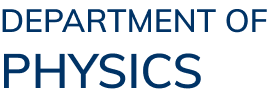Abstract
Decentralized system allows trustless collaboration among distributed participants directly without a central authority. Naturally, the system highly relies on cryptography to ensure information security and fairness. Classical cryptography is mostly based on the hardness assumption that can be solved by a quantum computer in polynomial time. Therefore, the research on quantum and post-quantum cryptography is becoming more and more important. This thesis explores how quantum information technology enhance the data-security in decentralized system from two different aspects. The first one involves the quantum solution of secure aggregation problem in multi-party secure computation without classical hardness assumptions. The quantum secure aggregation protocol uses decoy states and entangled quantum states to calculate the average of private numbers and detect inside or outside attacks. We analyze the protocol’s security and accuracy, also demonstrate numerical experiments to simulate the effectiveness. In the second one, we analyze the current quantum money protocols and propose the improved protocol which requires less quantum resources and support more functions. The cloud-based quantum money scheme allows the quantum money ecosystem to run on only semi-honest quantum cloud and classical participants and channels. Going a step further, the multi-channel currency scheme provides more kinds of secure transaction channels for choosing. In addition, we issue and transfer quantum currency on a real blockchain for the first time.
